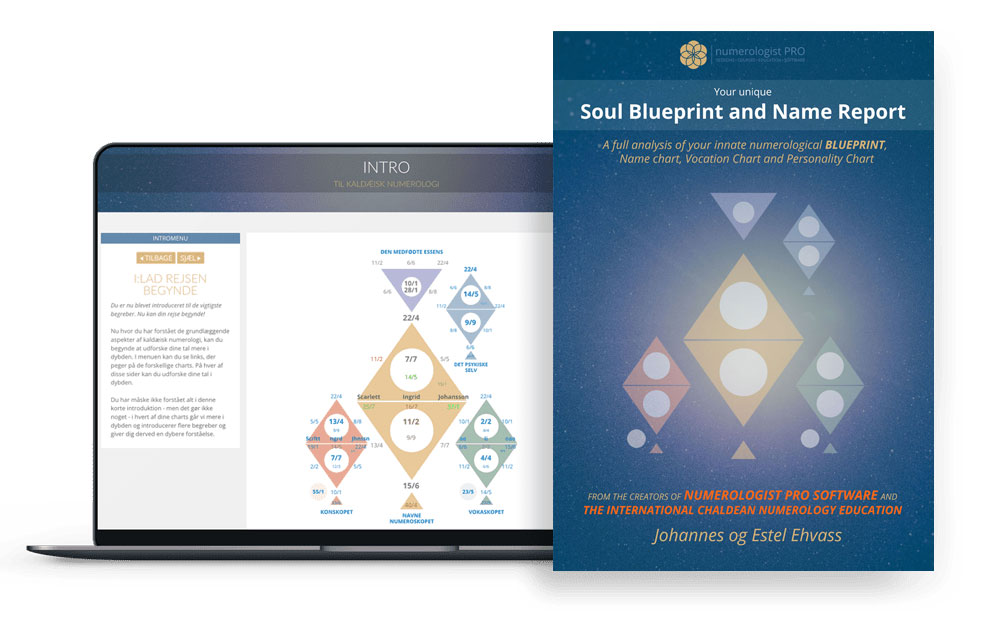Astrology: From Ancient Beginnings to Modern Popularity
The Wonders of Astrology: An Ancient Lens to the Soul
In the age of skepticism and rapid technological advancement, where science often takes the center stage, one might wonder about the place and relevance of astrology. Yet, delve deeper into this age-old discipline, and you’ll uncover a world filled with profound wisdom, uncanny insights, and sometimes, predictions so precise they’ll leave you astounded. The allure of astrology isn’t just in its mystical origins or its celestial subject matter, but in its astonishing ability to resonate with our lives, emotions, and innermost fears and aspirations.
How many times have we come across an astrological reading or horoscope that, despite our skepticism, seemed to perfectly capture our current emotional state or life situation? Those instances when, against all odds, the predictions of a planetary transit materialize right in front of our eyes? Such moments not only bring a sense of wonder but also a profound realization that perhaps, there’s more to the universe than the tangible, measurable world we see.
The Deep Resonance of Astrological Insight
Real astrology, devoid of the generic daily horoscopes we see in newspapers, delves deep into the soul’s journey. By examining the placement of celestial bodies at the time of our birth, it paints a detailed picture of our strengths, challenges, karmic debts, and life’s purpose. This natal chart, or birth chart, becomes a roadmap, offering guidance on our life’s journey.
For many, it’s not just about foretelling the future but understanding the present. It’s about recognizing patterns, deciphering the energy of certain periods, and making the most out of them. When faced with crossroads, astrology provides a unique perspective, grounded in millennia of observation and insight.
More Than Just Sun Signs
The depth and breadth of astrology go far beyond sun signs. While most are familiar with terms like “Leo” or “Virgo”, true astrological practice examines the interplay between planets, signs, houses, and various aspects they form. It’s a symphony of cosmic energies, each playing its part in the grand scheme of things. When understood correctly, it provides layers of insights, some so intricate that they can reveal nuances of our personality and fate that even we weren’t aware of.
Connecting the Individual and the Cosmos
At its core, astrology believes in the profound connection between the individual and the cosmos. The microcosm mirrors the macrocosm. By understanding the rhythms of the planets and stars, we can align ourselves with the universe’s ebb and flow. It’s a tool, an ancient one, that encourages self-awareness, introspection, and a deeper understanding of our place in this vast cosmos.
The Dawn of Celestial Curiosity
Humanity’s fascination with the skies dates back to our earliest ancestors. Long before city lights obscured our view of the cosmos, the night sky was a tapestry of stories, prophecies, and mysteries. Early humans, relying on nature’s rhythms, soon noticed patterns in the heavens—cyclic movements of stars, the predictable wanderings of planets, and the mystique of eclipses.
This observation wasn’t just a pastime; it was crucial for survival. Celestial patterns signaled changing seasons, guiding agricultural practices. But beyond the practical, these patterns held spiritual significance. They spawned myths, legends, and a deep-seated belief that celestial events had a direct impact on earthly affairs.
Foundations in Mesopotamia
While many ancient cultures observed the skies, it was the Babylonians in Mesopotamia who laid the foundation for what we recognize as Western astrology today. By the 2nd millennium BCE, they had developed a complex system of astrology, where celestial events and positions were meticulously documented. Their early ephemerides, or tables of planetary movements, showcase a sophisticated understanding of the heavens, intertwined with their religious and spiritual beliefs.
These ancient astrologers weren’t just passive observers. They actively sought to decipher the cosmic messages, believing that the gods communicated their will through the stars and planets. This divine communication was deemed so vital that royal courts had resident astrologers who advised rulers on everything from warfare to harvests based on celestial readings.
Spreading to Neighboring Cultures
The profound influence of Babylonian astrology didn’t remain confined to Mesopotamia. Through trade, conquests, and cultural exchanges, their astrological practices spread to neighboring civilizations, including ancient Egypt, Greece, and India. Each culture, while absorbing the essence, adapted and enriched the practice, adding their own unique perspectives and layers of understanding.
In ancient Egypt, for instance, astrology intertwined with their elaborate pantheon of gods and became an integral part of their religious ceremonies and architecture. The Greeks, with their penchant for philosophy, added a more systemic and theoretical dimension to the practice, laying the groundwork for Hellenistic astrology, a pivotal phase in the evolution of astrological thought.
The Babylonians and Astrology: Pioneers of Celestial Insight
Introduction

The fertile plains of Mesopotamia, cradled between the Tigris and Euphrates rivers, saw the rise of some of history’s most influential civilizations. Among them, the Babylonians stand out not only for their formidable empire but also for their pioneering advancements in the realm of astrology. It is here, under the expansive Mesopotamian sky, that astrology transitioned from simple sky-watching to a sophisticated system of celestial interpretation that would influence civilizations for millennia to come.
The Genesis of Babylonian Astrology
While ancient civilizations had their unique forms of sky-watching, the Babylonians took a decisive step forward by systematizing their observations. The foundation of Babylonian astrology lay in their “Enuma Anu Enlil”—a series of tablets detailing the movements of the Sun, Moon, and five visible planets. These tablets, compiled over centuries, showcased not only meticulous observations but also omens associated with various celestial phenomena.
Initially, Babylonian astrological practices were primarily omen-based. Solar and lunar eclipses, the appearance of certain stars, or the conjunction of planets—all were seen as portents, often signaling the gods’ favor or displeasure. This omen-centric approach is often termed “mundane astrology,” as it focused on predicting significant events or calamities, rather than personal fortunes.
The Creation of the Zodiac
One of the most influential contributions of the Babylonians to astrology is the zodiac. While earlier civilizations had identified constellations, it was the Babylonians who partitioned the sky into 12 sections, corresponding with the 12 primary constellations through which the Moon traveled in its monthly cycle. This celestial belt, where the paths of the Sun, Moon, and planets lie, became the foundation for the zodiac signs that are popularly known today.
The decision to split the zodiac into 12 might be attributed to the lunar calendar used by the Babylonians, with each sign roughly corresponding to a month’s duration. Over time, as their observational techniques advanced, these zodiac signs evolved from mere reference points to embody certain characteristics and meanings, forming the basis of natal astrology.
Personalizing Astrology: Birth Charts
While the early days of Babylonian astrology were characterized by omens and large-scale predictions, there was a noticeable shift around the 5th century BCE. Astrologers began to see the potential for applying celestial insights on an individual level. The concept of the natal chart or horoscope—where the positions of celestial bodies at the exact moment of a person’s birth are documented—emerged.
This shift marked the beginning of “genethlialogy” or the study of individual destinies. A person’s fate was no longer just tied to the grand cosmic events but also to the intricate interplay of celestial bodies at their time of birth. This more personalized approach made astrology more accessible to commoners, ensuring its widespread adoption and longevity.
Babylonian Astrology in Governance
Royal courts in Babylon often housed resident astrologers. Their role was vital, as they were responsible for advising the king on matters ranging from warfare and diplomacy to agriculture. The belief was that the gods conveyed their intentions and will through the stars. As such, any major decision, especially those that could affect the entire kingdom, warranted astrological consultation.
This influence wasn’t limited to kings. City planning, temple construction, and even the layout of public spaces often took astrological considerations into account. For instance, certain temples were aligned to particular stars or constellations, believed to be the abode of the deity the temple was dedicated to.
Legacy and Influence
Babylonian astrology, with its blend of empirical observation and spiritual interpretation, laid the foundation for many astrological systems that would follow. The Greeks, notably, were heavily influenced by Babylonian astrological practices. Hellenistic astrology, which emerged around the 3rd century BCE, owes much of its foundational knowledge to Babylonian antecedents. From the Greeks, this knowledge traveled to Rome, and eventually, through the Arab world and Medieval Europe, weaving a tapestry of astrological traditions that spanned cultures and epochs.
Conclusion
The Babylonians’ contribution to astrology cannot be overstated. From meticulously chronicling celestial movements to devising the zodiac and personalizing astrological insights, they transformed astrology from a rudimentary practice into a deep and structured discipline. Their legacy is a testament to human curiosity, the desire to find meaning in the cosmos, and the profound belief in the interconnectedness of the heavens and Earth.
This article provides a comprehensive overview of the Babylonians’ contribution to astrology, but it’s worth noting that Babylonian astrology was complex and multi-faceted, with nuances that spanned both the practical and the mystical. As with any ancient practice, interpretations and practices might have varied over time and across different regions of the empire.
Hellenistic Astrology: An Insight into the Foundations of Western Astrological Thought
Introduction

Hellenistic astrology, originating from the fusion of Babylonian and Egyptian astrological practices with Greek philosophical thought, stands at the crossroads of history as one of the most influential and comprehensive astrological traditions.
Spanning from the late 2nd century BCE until the 7th century CE, this period bore witness to the consolidation of astrological techniques and theories that would heavily influence later Western astrological traditions.
Historical Context
The rise of Hellenistic astrology was precipitated by the conquests of Alexander the Great, which led to the blending of Greek culture with the ancient civilizations of Egypt and Mesopotamia. The city of Alexandria in Egypt became a focal point for intellectual and cultural exchange, making it a cradle for the synthesis of astrological knowledge.
Major Contributors and Texts
Claudius Ptolemy
Arguably the most influential figure in Hellenistic astrology, Ptolemy’s work, the ‘Tetrabiblos’ (or ‘Quadripartitum’), laid out the philosophical and technical foundations of astrology. While he didn’t invent the techniques he described, Ptolemy’s rational approach and attempt to align astrology with the natural sciences provided a framework that would be used and referenced by astrologers for centuries to come.
Vettius Valens
An astrologer who practiced in the 2nd century CE, Valens authored the ‘Anthology’, a ten-volume work that delved into various astrological techniques. His writings offer a glimpse into the actual practices and methodologies employed by astrologers of his time.
Dorotheus of Sidon
A seminal figure from the 1st century CE, Dorotheus is renowned for his didactic poem on astrology, ‘Carmen Astrologicum’. The work covers topics such as elections, horary, and mundane astrology, and it integrates Mesopotamian astrological traditions with newer Hellenistic concepts.
Key Concepts and Techniques
The Zodiac and Houses
Building upon Babylonian traditions, the Hellenistic astrologers adopted the twelve-sign zodiac, with each sign corresponding to 30 degrees of the ecliptic. Furthermore, the concept of astrological houses — areas of life activity or spheres of experience — was refined during this period. Different house systems, like the Whole Sign and Equal House, were established.
Planetary Rulerships
The planets were associated with specific zodiac signs, establishing a system of rulerships. For instance, Mars was traditionally associated with Aries and Scorpio, while Venus was linked to Taurus and Libra. These relationships emphasized the natural affinities and qualities shared between planets and their corresponding signs.
Aspects
The spatial relationships between planets, known as aspects, were fundamental to Hellenistic astrology. The major aspects included conjunctions, sextiles, squares, trines, and oppositions. Each of these had particular interpretative meanings, suggesting harmonious or challenging interactions based on geometric angles.
Lots or Arabic Parts
A unique feature of Hellenistic astrology was the use of Lots, arithmetical points calculated using the positions of two planets and the Ascendant. The most well-known is the Part of Fortune, but many others were utilized for various interpretative purposes.
Integration with Greek Philosophy and Culture
One of the hallmarks of Hellenistic astrology was its deep integration with prevailing Greek philosophical thought. The four elements (Fire, Earth, Air, and Water) and the three modalities (Cardinal, Fixed, Mutable) were adopted from Greek cosmology, adding layers of meaning to the zodiac signs. Moreover, the Stoic philosophy, emphasizing the interplay of fate and free will, found resonance in astrological interpretations. The cosmos was seen as an ordered, interconnected system, with humanity influenced by, yet possessing agency within, this cosmic order.
Decline and Legacy
By the end of the Hellenistic period, the rise of Christianity began to challenge the prevailing astrological paradigm. Christian authorities, wary of the deterministic aspects of astrology, often criticized and suppressed its practice. However, the legacy of Hellenistic astrology persisted. The Arab scholars of the Islamic Golden Age preserved many Hellenistic texts, leading to a renaissance of this knowledge in Medieval Europe.
Conclusion
Hellenistic astrology represents a golden era of astrological development, where traditions from diverse cultures were synthesized into a coherent and rich system. Its techniques and concepts form the bedrock of modern Western astrology. The interplay of fate and free will, the intricate dance of planetary influences, and the quest for self-understanding through the stars remain as pertinent today as they were in the times of Ptolemy and Valens.
Astrology in the Middle Ages: Transition, Integration, and Revival
Introduction

From the ashes of the Roman Empire’s decline arose the complex tapestry of the Middle Ages, a period spanning roughly from the 5th to the late 15th century.
Amidst socio-political upheavals and religious shifts, astrology maintained its allure and continued to play a pivotal role in various aspects of life.
This era saw a renaissance of astrological thought, synthesized with new religious and philosophical insights.
The Fall of Rome and the Preservation of Knowledge
As the Western Roman Empire crumbled, many of its intellectual treasures, including astrological texts, were at risk of being lost forever. Fortunately, the Byzantine Empire (Eastern Roman Empire) acted as a reservoir of Hellenistic knowledge, preserving and transmitting these texts.
Moreover, the Islamic Golden Age (8th to 13th century) was instrumental in safeguarding and expanding upon Hellenistic astrological wisdom. As Arab scholars accessed texts from Persia, India, and Greece, cities like Baghdad became crucibles of intellectual fusion. Renowned figures like Al-Tabari, Al-Qabisi, and Al-Biruni translated, commented on, and expanded upon works by Dorotheus of Sidon, Ptolemy, and Vettius Valens, ensuring their legacy endured.
Integration with Abrahamic Faiths
The Middle Ages witnessed the ascent of Christianity in the West and Islam in the East. This posed theological challenges for the practice of astrology. However, instead of a complete dismissal, there was an effort to reconcile astrological practices with religious doctrines.
Christian scholars like Isidore of Seville and Albertus Magnus tried to fit astrological beliefs within Christian dogma. They argued that while the planets might influence terrestrial events, human free will, under God’s grace, remained paramount. Similarly, in Islamic contexts, astrology was differentiated from forbidden forms of divination, maintaining its appeal among both scholars and laypeople.
The Revival of Astrology in Medieval Europe
By the 12th century, the Reconquista and Crusades facilitated the transmission of Arabic and Greek astrological texts back into Europe. The establishment of institutions like the University of Bologna and the University of Paris saw a resurgence in the study of astrology. This revival was bolstered by the translation movements in Toledo and Sicily, where Arabic astrological texts were rendered into Latin.
Iconic figures such as Guido Bonatti in Italy and John of Saxony in Germany penned extensive treatises, blending their interpretations with existing knowledge. These works laid the groundwork for the subsequent Renaissance period’s astrological frameworks.
Astrology and Monarchy
Astrology’s influence wasn’t limited to academia. European monarchs and nobility frequently consulted astrologers for guidance on governance, warfare, and personal matters. Kings like Richard II of England and Charles V of France maintained court astrologers, underscoring the discipline’s significance in political circles.
Medical Astrology
Medicine and astrology were deeply intertwined during the Middle Ages. Medical practitioners often cast horoscopes to diagnose ailments, determine treatment courses, and even to select auspicious times for surgeries. Leading medical minds, such as Avicenna and Hippocrates, acknowledged the planets’ influence on human health.
Critiques and Controversies
While astrology enjoyed widespread acceptance, it wasn’t without detractors. Religious figures, from Saint Augustine to the Islamic scholar Ibn Qayyim Al-Jawziyya, expressed reservations about astrology’s deterministic implications, viewing them as challenges to divine omniscience or human free will.
Moreover, as the scholastic movement gained momentum, a more rigorous scientific approach began questioning some of astrology’s foundational premises. By the Late Middle Ages, figures like Nicole Oresme were pointing out inconsistencies in astrological predictions and practices.
Conclusion: The Legacy of Medieval Astrology
Though astrology’s journey through the Middle Ages was marked by ebbs and flows, its indelible imprint on various facets of society is undeniable. It not only survived religious and philosophical scrutiny but also adapted, integrated, and flourished, setting the stage for its role in the Renaissance and beyond.
This era’s synthesis of Hellenistic, Arabic, and European astrological traditions culminated in a rich tapestry of knowledge. Today, modern practitioners owe a debt of gratitude to the medieval scholars and astrologers who bridged the ancient and the modern, ensuring that the celestial art remains luminous through the ages.

Johannes & Estel: Renowned authorities in Numerology, Astrology, and the esoteric arts. As the founders of Scandinavia's premier Numerology school, we're delighted to share our insights through this curated series on astrology. Dive in and discover the stars.
The Worlds Most Advanced Numerology Report

Your birthdate reveals your unique life purpose, potentials, talents, weaknesses, and karma in this life.
Your names show what you attract into your life regarding your career, relationships, happiness, money, and success.
GET THE REPORT HERE
Introduction to Astrology
The history of Astrology
Moving beyond deterministic astrology
Foundation of Astrology: Planets, Signs and Houses
Astrology and the Holographic Universe
The Holographic Universe
The Human Psyche as a Mirror to The Solar System
The Human Body as a Mirror to The Star Signs
Astrology Background
Egyptian Astrology
Mayan Astrology
Chinese Astrology
Indian Astrology - Jyotish
Celtic Astrology
Tibetan Astrology
Mesopotamian Astrology
Early Mesopotamian Astrology: The Dawn of Celestial Divination
Enuma Anu Enlil: The Epicenter of Babylonian Celestial Omen Interpretation
Babylonian and Chaldean Astrology
Babylonian and Chaldean Astrology
Chaldean influence and evolution
Chaldean Wisdom: Safeguarding and Transmitting Astrological Knowledge
Hellenistic Astrology
Hellenistic Astrology background
Claudius Ptolemy and Tetrabiblos
Vettius Valens
Dorotheus of Sidon
Persian Astrology
Persian Astrology background
Sassanian Astrology
Late Antiquity and The Transition Period
Late Antiquity and The Transition Period
Hellenistic to Islamic Transition: The Torchbearers of Astrological Wisdom
Islamic Golden Age
Arabian Astrology Background
Arabian Astrology Contributions
Medieval Astrology
Introduction: The Medieval Cosmos
Monastic Preservers: Astrological Knowledge in the Dark Ages
Astrology in Medieval Medicine
Kings, Queens, and Constellations: Astrology in the Medieval Court
The Church and the Stars: A Contentious Relationship
Universities and Scholastic Pursuits: Academic Astrology
Astronomy & Astrology: Tools of the Trade
Medieval Astrological Houses and the Synthesis of Traditions
Transition to the Renaissance: Humanism and the Celestial Arts
Reflections: Medieval Astrology's Echoes in Modern Practice
Astrological Art of the Middle Ages
Famous Medieval Astrologers
Medieval Astrological Texts
Renaissance Astrology
Renaissance Humanism and Astrology
Scientific Advancements and Astrology
The Social Fabric: Astrology in Everyday Renaissance Life
Court Astrologers of the Renaissance
Controversies and Conflicts: Astrology Under Scrutiny
Renaissance Texts and Authors: Continuation of a Tradition
Astrology and Art: Celestial Imagery in the Renaissance
Renaissance Astrological Practices: Evolutions and Innovations
End of the Renaissance: The Gradual Decline of Astrological Influence
Renaissance Astrology's Echo in the Modern World
Enlightenment Astrology
Introduction: The Enlightenment and Astrology
Challenging the Stars: Astrology's Critics during the Enlightenment
Astrology and the New World
Astrology in the 19th Century
The Dawn of Psychological Astrology
Astrology in the 20th Century: A Modern Renaissance
Astrological Associations and Schools
Modern Controversies and Astrology
Astrology and Popular Culture
Astrology and Technology
Current Trends and Future Directions in Astrology
Conclusion: Reflecting on Astrology's Evolution
The Planet Significances
The Sun in Astrology
The Moon in Astrology
Mercury in Astrology
Venus in Astrology
Mars in Astrology
Jupiter in Astrology
Saturn in Astrology
Uranus in Astrology
Neptune in Astrology
Pluto in Astrology
Chiron in Astrology
Black Moon Lilith in Astrology
Pars Fortuna in Astrology
Ceres in Astrology
Houses in Astrology
Introduction to Astrological Houses
The Angular Houses
The Succedent Houses
The Cadent Houses
The 1st House
The 2nd House
The 3rd House
The 4th House
The 5th House
The 6th House
The 7th House
The 8th House
The 9th House
The 10th House
The 11th House
The 12th House
Interaction Between Houses
Derived Houses, House Rulers, and Interceptions
Conclusion: Synthesizing House Knowledge
All Materials © 2023 & 2024 Numerologist PRO
Terms of Service: Information provided by Numerologist PRO and/or from this web site is not intended as advice (medical, psychological, financial or other), nor is it intended to replace your work with a qualified professional (medical or otherwise). You should maintain your relationship with your providers and consider the services of this site as informational only. Any information, stories, examples, or testimonials presented on this website do not constitute a warranty, guarantee, or prediction regarding the outcome of an individual. This web site is a sharing of knowledge and information of numerology/energy work based on the experiences of Numerologist PRO. You are encouraged to make your own decisions based on your own research and inner guidance. By booking and receiving services, you agree to fully release and hold harmless Numerologist PRO and all it's affiliated numerologists from and against any liability or claim that may arise out of or in connection with their service(s).
Numerologist PRO © 2021

CONTACT
numerologist@numerologistpro.com
LIKE US, and get free numerology tools, info about your personal numbers, best business dates of the year - and more!
YOUR FREE NUMEROSCOPE CHART
Enter your name and email below and get access to our free online numerology chart tool.